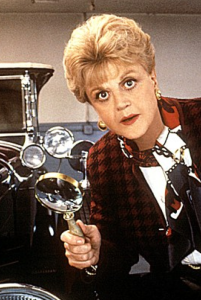
Angela Lansbury – Also British
Cate Baum, born in Cambridge, England, breaks down some myths about Brits.
It seems that British characters in fiction written from an American point of view have two forms: one, a James bond-style hunk with connections to monarchy or aristocracy, or a downright villain.
As kids in England, my sister and I used to joke that if there was an episode of “Murder She Wrote” with an English character, they would always be the murderer – we were right 9 times out out of 10! (Angela Lansbury is English too, by the way, and was a bridesmaid at my great cousin’s wedding. I digress…)
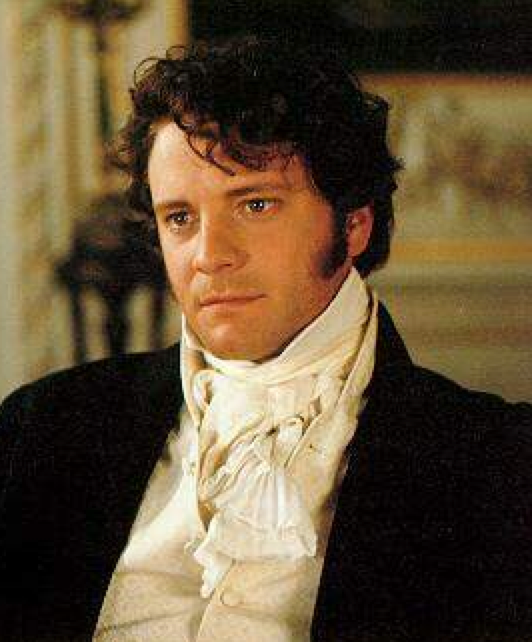
Upper Classes – Lots of Swearing in Britain.
So let’s at least get your language straight with some words that will help you write credible British dialogue that doesn’t strike any of your British readers as a complete cliché (stereotype). Contains liberal swearing and bawdiness, because British people swear – a lot!
1. We use French, Scottish, Welsh, and Irish phrases
Shocking as it is, we use quite a bit of French, being only 26 miles from the place. Most Brits speak at least some French, with a good percentage speaking it more or less fluently because we learn it in school from age 11 or earlier. Even with Brexit, that won’t change. The same goes for our Irish, Scottish, and Welsh cousins. Great Britain is made up of Scotland, England and Wales, where as Britain is just England and Wales. But The United Kingdom, the UK, is The United Kingdom of Great Britain and Northern Ireland, but we still refer to ourselves in England as Brits, because we are that as well. However, Ireland itself is a separate European state that uses Euros, while the UK uses GBP (£), even though until last month we were part of Europe. Confused much?
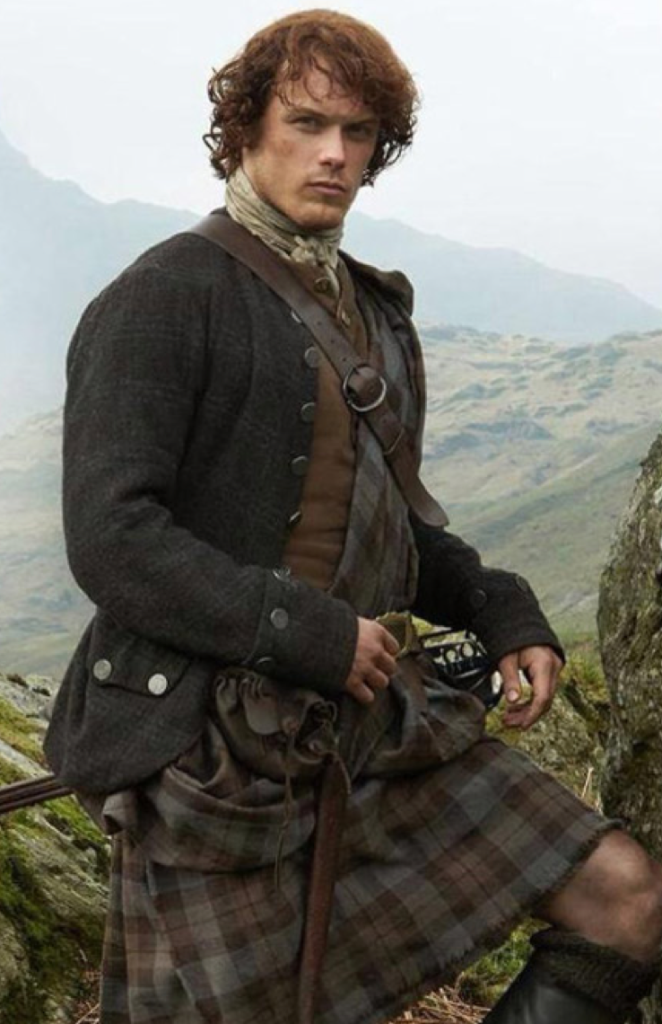
The “Outlander” novels by Diane Gabaldon highlight the use of Scots Gaelic in Great Britain
- Main examples for French are differences around food – eggplant in England is aubergine and zucchini is courgette. We don’t eat flan, we eat “creme caramel.”
- Feck – This is the Irish version of “f*ck” but it is used as a non-swearing version of the word by all.
- Shite – Same thing, Irish swearword variant often now used
- Gobshite – an idiot, fool, or someone who talks a lot of shite
- Pernickety – From the Scots Gaelic, to mean “fussy”
- Minging – From the Scots, to mean “very ugly and unappealing” – pronounced to rhyme with “ringing”
- Skullduggery – From the Scots for “adultery, or underhanded behavior”
- Wee – Scots for “tiny,” but we also use it for “having a wee” to mean going to the bathroom.
- What’s occurring? – Very Welsh way of saying, “What’s happening?” but most of us say it now.
- “Oh, never!” is our Welsh way of saying, “I can’t believe it!” when hearing a story.
- Fair play – This means a Welsh, “OK, I will agree with that one.” If something is fairly well apportioned, and we sort of agree, it’s also “fair play.”
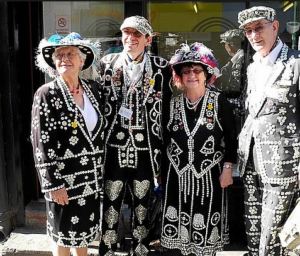
Pearly Kings and Queens in London – Cockneys
2. We use cockney slang sometimes, even if we are middle or upper class
Cockney rhyming slang is a way of speaking by cockneys, a group of East Londoners “born within the sound of Bow (church) Bells.” They also wear black suits full of pearl buttons, and are known as “pearly kings and queens.” Cockney takes a phrase and rhymes it with a word so an outsider can’t understand what is being said. This dialect has entered English language thoroughly as fun use in a conversation:
- “Let’s take a butcher’s” means “let’s take a look /butcher’s hook”
- “Do you like my whistle?” means “do you like my suit?/whistle and flute?”
3. We use words most Americans don’t – and it’s a lot of swearing, so get used to it!
- We say say “brilliant!” instead of “fantastic!” and (middle classes up) “jolly good!” instead of “great!”
- We say “hard luck” instead of “bad luck” – in fact wishing someone “bad luck” is to curse them!
- We say “too bad” when we mean a rude “tough, you can’t” whereas Americans say “too bad” as a commiseration
- We say “knackered” for “very tired” or “done for”
- We say “f*ck” ALL THE TIME! Like, truly, every other f*ckin’ word.
- We say “arse” not “ass” – an “ass” is a donkey in Britain. But “arse” is not a very sexual word. We’d say “bum” more often. “Bum” does not mean a homeless person in the UK. We say “tramp” for a “bum.” And a “tramp” is not a “hooker” but a “hooker” is not a whore, but is a long pipe used for smoking flavored tobacco a la Alice in Wonderland’s caterpillar…
- We say “jumper” for “sweater,” and a “sweater” is used for a thick jumper or jogging top only. We don’t say “pants” but “trousers” and “pants” are “underpants,” or “knickers” for women instead of “panties.” Of course, with an American accent this can be misheard as a terrible word so I wouldn’t advise trying it out in public…
-
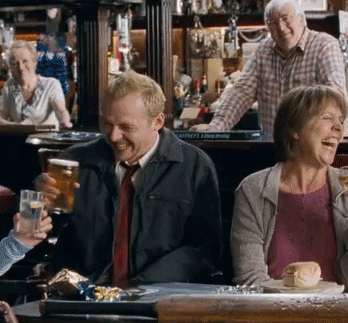
Cheers! Pubs are important in British culture
We have pubs in the UK, but we wouldn’t say “let’s go down the pub” in any other country, because pubs are in Britain and Ireland. A public house is a very specific sort of place, tied to the history of people not having a living room to sit in, and “public” houses were to relax in, away from screaming kids. Houses are still very tiny in Britain, with tiny rooms, hence the pub lives on. We have bars too, but bars are a sexier place with just a bar, and some food tables, and we go to a bar to get laid or to drink. A pub has a lot of things, like family rooms, games tables, and playgrounds, and we go there to socialize and eat with our families on a weekend – as well as getting drunk, but well, everyone gets drunk all the time in Britain.
- Bugger – A lot of Brit humor is geared round the nether nether regions. Hence “bugger” is a light word used in volumes. “Bugger all” means “nothing” – “There was bugger all to look at.” If you are “buggered” you are “f*cked” or “screwed” – so you can use it liberally. We do use it for its original meaning, but “taking it up the arse” is more our style, also to mean, “to be ripped off, taken advantage of, humiliated, or swallow someone’s wrath.”
- Gutted – To be gutted is to be very disappointed or upset. “We were gutted to lose the football.”
- The football – Used to mean “the game of soccer.” Also called, “the game.” We don’t really say “soccer.” We call football in the US, “American football” but we have rugby, which is your football – without the armor. We’re hardcore in Britain. “Did you see the football?” is used to mean whatever game was on that night. We’re supposed to keep up.
- Having a go – If you “have a go” at someone, you are “yelling” at them. “Yelling” in the UK means the equivalent of a Viking yelling at an ant level of shouting, so it can get confusing for a Brit to be told they have been yelling at someone when they merely “had a go.” You can also “have a go” at something, which means to “try your hand at” something.
- Massive – We use this word all the time as an adjective to replace “very” – “it was massively good.” We also use it as a noun to describe our group of friends, “Hackney Massive!” means “posse living in Hackney.”
- Cheers – We say this when we clink glasses, but also as “thank you” all the time. We often end a call with “cheers!”
- Ta – Probably from our other immediate neighbors the Swedish/Danish, this word for “Thanks” comes from “Tak/Tack.” “Ta very much!” is a common phrase, often used sarcastically when a jibe is delivered.
- Fortnight – This word means “two weeks.” There isn’t an equivalent in US English.
- Well – Another variant on “very,” as in “it’s well cold outside.”
- Bare – Yet another variant on “very,” as in “she’s bare hot!” – usage is among young people.
- Brolly – Short for “umbrella”
- We say “bloody” as a swearword, sometimes softened to “blooming,” so “blooming ‘eck!” is actually “bloody hell!” Pronounced, “Bloomin’ek!” or “bluddy hell”. This has no relation to the urban word, “blud” to mean “brother” in the US.
- Rubbish – While “trash” has come to mean something/someone of the lowest quality in Britain, we still use the word “rubbish” for garbage (a word we also don’t use except as a cultural insult) – rubbish also is a cultural snub. We take out the rubbish, not the trash.
- Murder – As in “devour/eat” – “I could murder a burger.”
- “Wonky” To mean “uneven” or a bit touched, “She’s a bit wonky” or “The table leg is wonky.”
- Brown bread – Apart from being Cockney Rhyming Slang for “dead,” this is also what we call all forms of wholemeal bread.
- Bits and bobs – Little things, “I need to pick up some bits and bobs at the shops”
- Lift – Not elevator
- à la mode – not “with ice cream,” but “of the fashion/moment” – “all the rage.” So unless you are ordering fashionable dessert, you’ll have ask for it “with ice cream.”
- Ground floor – We don’t say “first floor” for the street-level floor. For us, the first floor is the first floor up from the ground floor.
- Fag – Actually not an insult in the UK, and means “cigarette” so don’t be alarmed if you are asked if you have “a spare fag.” They just want a smoke.
And my favorite that always stuns foreigners, “Blimey!” Short for “God blind me!” this is the equivalent of “God strike me down!” and we say it when something is very surprising.
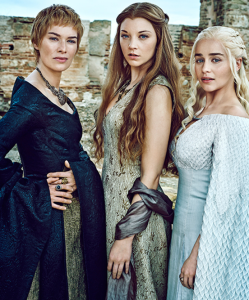
GOT – We don’t all talk like that in England
4. There are some words we never use
- We never say “Oh boy” or “holy…anything.” These phrases just remind us of Donald Duck or Batman.
- While we say “Jeez,” it’s more likely we’ll say “Christ!” as a swearword. “Jeez” is still held as very American, and we do use it sarcastically.
- We don’t say “ma’am” or “sir” in unofficial scenarios – we say “mate,” “son,” “bruv” or “boss” for men, or “love” for the opposite sex. Kids never call their parents “ma’am” or “sir.” We only use “sir” and “madam” for very official situations. Scots may use “brother” as a term of friendship, too.
- We never say “y’all”
- Mum/mom – We never say “Mom” only “Mum.”
- Parking lot – We say “car park”
- Market – We go to the supermarket, not the market. A market is a farmer’s market only in British English.
- Store – We don’t “go to the store,” we go “to the shops.” Sometimes we use “store” to describe a very niche shop, “haberdashery store” or a very large shop, “I have to go to the furniture store” but it’s not very common, and only really applies to a “superstore” such as Toys R Us or similar.
- Stick shift – we say “manual” because cars are mostly manual in the UK, and use “gears” not “stick shift.”
- Aluminum. We say “Aluminium,” pronounced “Alooomineeumm”
- We don’t talk like Game of Thrones characters, either. We don’t say “By the gods!” “Gadzooks!” or “Yes, sire” anymore, and probably haven’t for about 500 years. Although in certain recent bygone eras, servants would have said, “Yes m’lady.” What is realistic in GOT is the characters’ accents from The North. You will hear these exact accents in England in more Northern towns like Middlesborough, Sheffield, Newcastle Upon Tyne, Derby, and Nottingham. But be advised that coastal accents vary immensely, such as the Liverpudlian accent (think Ringo Starr) and Chester accent (think Daniel Craig) when mixed with class and upbringing.
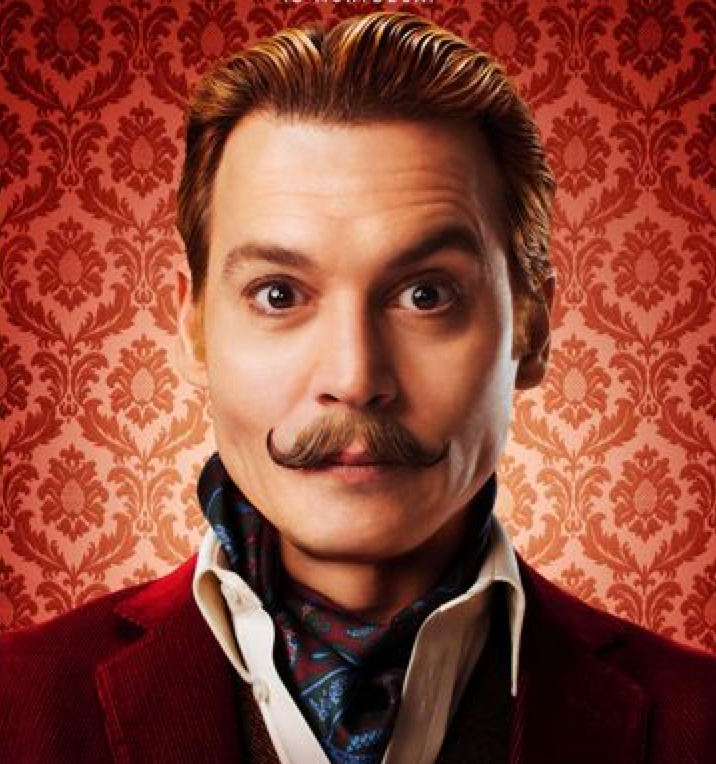
Johnny Depp as Mortdecai – Possibly the most offensive Brit character ever after Dick Van Dyke in Mary Poppins
5. A word about class in Britain
We are a varied bunch, but not classless as some would lead you to believe. Working classes tend to use more slang, but we do use just as much swearing in middle and upper classes. As in other European languages, swearing is not such a big deal. There are many upper-class folk in Britain connected to aristocracy and lords and ladies (the landed gentry, i.e. those with land and stately homes), but really not that many connected to royals. In the 1900s, the Marquis de Ruvigny published a list of 40,000 people who were considered to be of royal descent. But the truth is that since the 20th century, royal marriage in England has been incredibly restrictive, and anyone marrying into the family is vetted constantly, getting rid of the “untitled” portion of royal descendants, i.e., ahem, the children born to servants and maids out of wedlock. In fact now, the list is only made up of around 25 different threads, all of whom marry almost exclusively to other royals or gentry.
Across Britain we have a poverty and homelessness issue, despite our fantastic social system. This is tied to education cuts, and social housing issues.
However, unlike America, in Britain classes and different races mix liberally as friends, colleagues, and families. My family for example has Algerian, Iranian, Welsh, Scottish, Jamaican, American, Ukranian, and Syrian relatives now, as well as Jewish, Muslim, Buddhist, Christian, and Jehovah’s Witness religions being practiced within that, something nobody blinks an eye at. We even have a prayer mat stored away at my dad’s, in case of visitors!
Having said that, there’s always going to be some traditional racial hatred between the English and the French, the English and the Scots, and the English and the Irish – and probably the Welsh, come to think of it. More so now with Brexit. But much of this is in jest. Yes, I told you about the British darkness when it comes to humor…
6. A word about social interaction
Unlike Americans, we love to tease each other, and insult each other – we tend to be very thick skinned and can laugh at ourselves in most situations. Using strong swearwords such as “c*nt” and “f*cker” is quite a normal way to greet peers at a party or at the pub, “how are you, you c*nt?” or “this big ugly f*cker” is actually totally fine, and seen as endearment among friends. We often tease each other about our bad habits, and love nothing more than to bring up an embarrassing moment of a friend or family member to pick over and have a “good laugh” at them. Getting drunk is the norm, and those who don’t drink may be picked over — even at higher-class social events it would be frowned on not to “partake”. Please and thank yous in great amounts as well as saying “sorry” for almost everything, and in place of “pardon me” and “excuse me” also accompany this set of social rules.
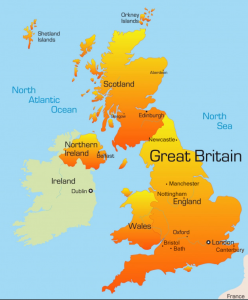
The United Kingdom of Great Britain and Northern Ireland
7. A word on pronunciation of places Americans sometimes get wrong
We have Gaelic/Kentish tendencies. So here’s how we say things, just in case you need to get your audio book right so you don’t end up in “Less-Ice-Ster Square” :
- Leicester – Lesster
- Gloucester – Glosster
- Edinburgh – Ed-in-burrha
- Buckingham Palace – Buck-king -mm Palace
- Windsor – Winns-a
- Glastonbury – Glass-tn-bree
- Milton Keynes – Mill-tn – keens
- Durham – duh-rm
- Ely – Ee-lee
- Notre Dame – Not-trer – dahm
- Loughborough – Luff-brah
- Cymru (Wales) – Cumm-ri
- Llanelli – Clan-ech-li
- Lloyd – Loyd
- Oxford – Ox-ferd
- Derby – Dah-bee
Well, good luck to you, mate, and here’s to a bloody good job on your next Brit character! Cheers!
Get an Editorial Review | Get Amazon Sales & Reviews | Get Edited | Publish Your Book | Enter the SPR Book Awards | Other Marketing Services

















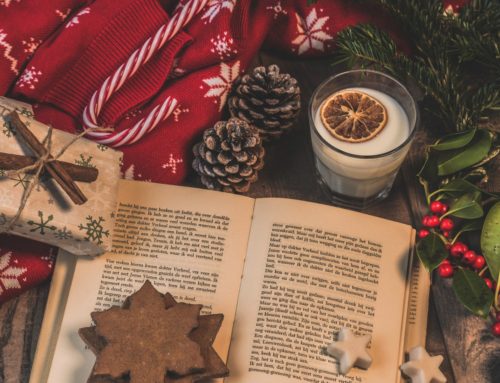




Thanks for this! I’m chuffed to see I got fecking correct.
Ah, but you bring up the fiction writer’s great dilemma. When writing a book set in the UK but for an American audience, do you:
1. Get the characters, culture and language right, unsettling your readers.
2. Describe what happens in ways that reinforce stereotypes, leaving readers comfortable.
Whilst there’s a lot of interesting and currently correct information in this article, there’s also a bit of stereotyping of Brits by the writer. Not all Brits swear all the time and a lot of us, particularly those of the older generations, regard constant swearing as a sign of ignorance. We’re both disgusted and offended by overuse of swear words in everyday speech. The author does not cater much for regional differences either. For example I’m a northerner and have never used or heard the term fecking outside the TV programme, Mrs Brown’s Boys, and we say Mam not Mum. I’d use the same pronunciation, ‘bruh’ for Edinburgh, Middlesbrough and Loughborough. I’d never use the term ‘what’s occurring?’ I’d say, ‘what’s going on?’ whilst my teenage son would use the trendier phrase, ‘what’s going down’. Northern accents also vary considerably and not just in coastal areas. This brings me to another point. Young Brits have a language of their own which is greatly influenced by TV to the extent it embraces words and phrases from the US and as far away as Australia. And regarding InklingBooks dilemma, I’d say as a reader and writer I’m never comfortable with stereotypes. Humans aren’t stereotypical and characters shouldn’t be either. My advice would be to do your research. With social media it shouldn’t be too difficult to find a Brit of a similar age and background and from the region you want to represent. And don’t overdo it. A few stock words and phrases will probably be enough to define your character.